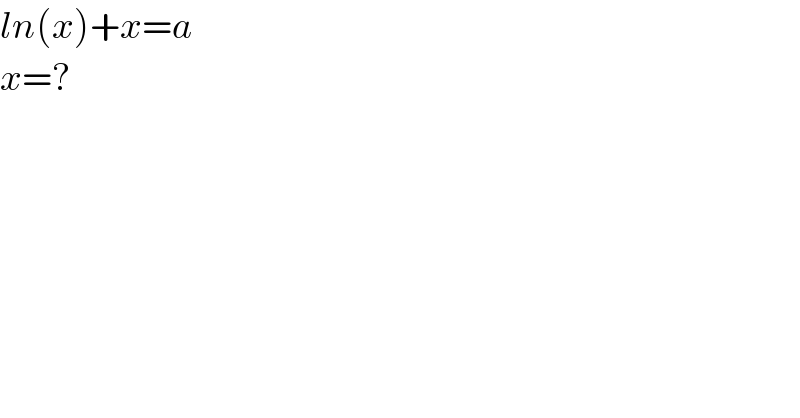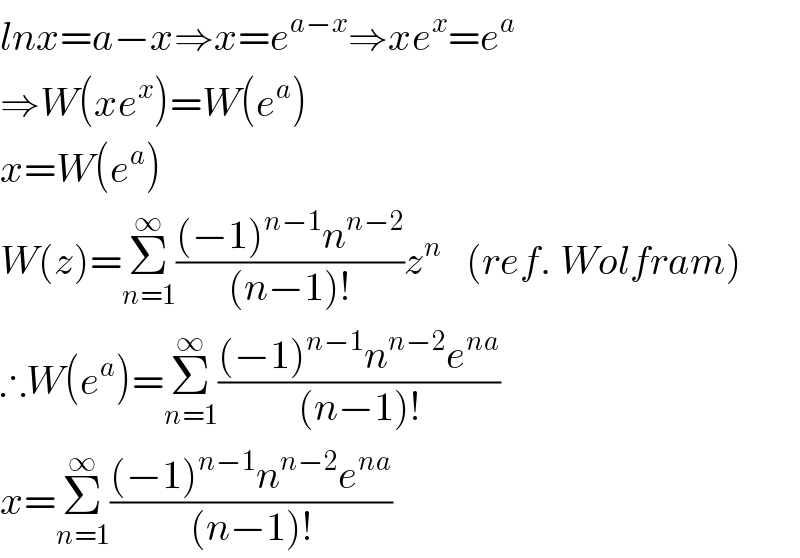
Question and Answers Forum
Question Number 6055 by 1771727373 last updated on 11/Jun/16

Answered by Yozzii last updated on 11/Jun/16

| ||
Question and Answers Forum | ||
Question Number 6055 by 1771727373 last updated on 11/Jun/16 | ||
 | ||
Answered by Yozzii last updated on 11/Jun/16 | ||
 | ||
| ||